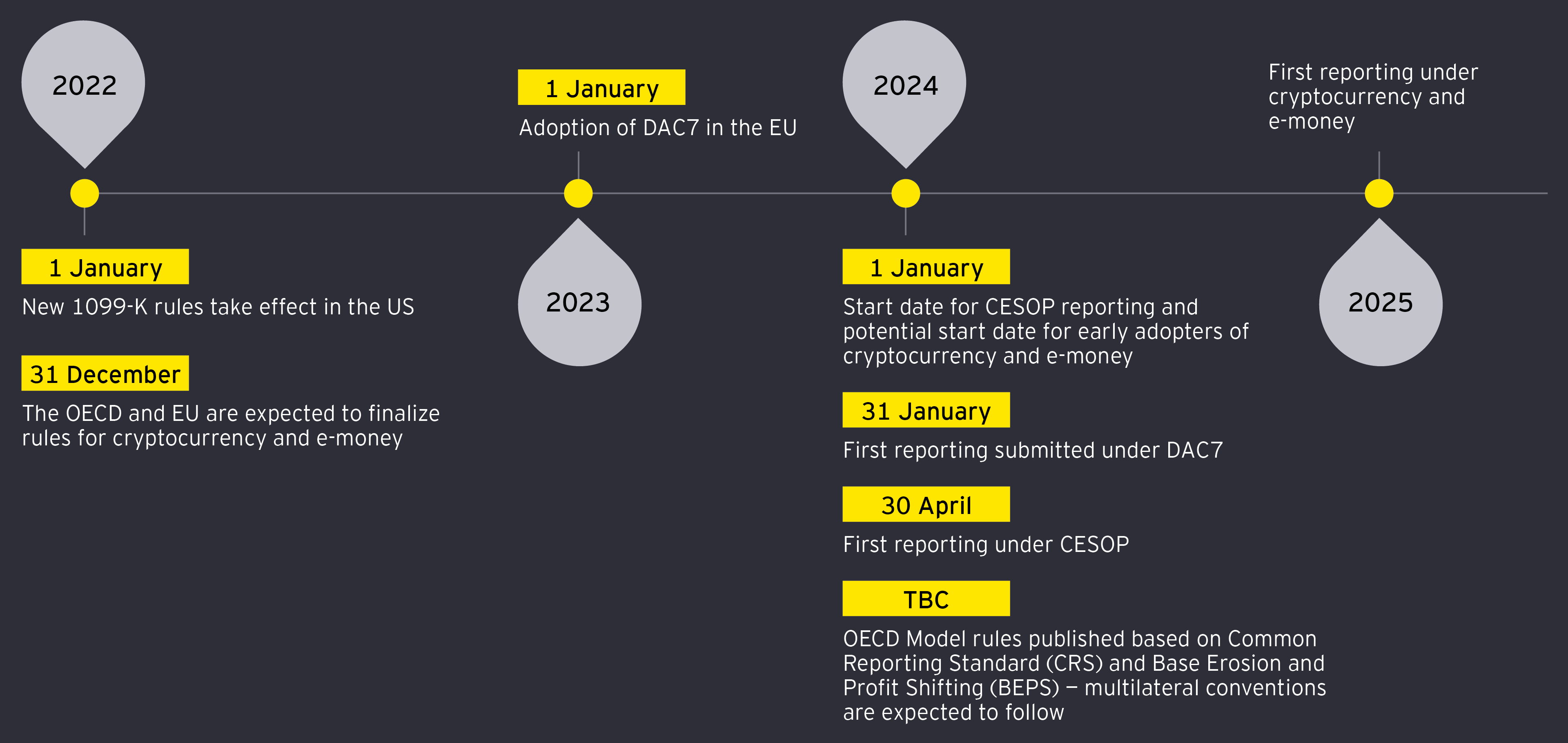Automatic Exchange of Information (AEOI) services: DAC7, DAC8 and CESOP
New rules, namely CESOP, DAC7 and DAC8 will require digital businesses to report information on their users to tax authorities. These rules will affect digital platforms, payment service providers, cryptocurrency, and e-money. Although the rules can sound simple, they require change throughout an organization’s business model – and EY teams can help.
What EY can do for you
The implementation of three new regimes (DAC7, DAC8 and CESOP), along with the expansion of current rules known as the Common Reporting Standard (CRS), are likely to result in a substantial proportion of the digital economy being brought into scope for Automatic Exchange of Information (AEOI).
Having helped in delivering over 1,000 AEOI-related engagements across the globe, the EY Customer Tax Reporting team can help your organization prepare for the coming changes.
Requirements
Regardless of the regime, the requirements for affected organizations are broadly the same:
- Onboard and collect additional information from sellers — including Taxpayer Identification Numbers, dates of birth, and potentially declarations of tax residence.
- Classify users (customers, sellers, and payees) and determine reportable status.
- Monitor for changes to the status.
- Report annually to their tax authority.
- Provide information to users on what has been reported.
- Maintain records by reconfirming information with sellers every three years.
- For digital platforms and cryptocurrency, freeze the accounts where information is not provided.
Timeline



